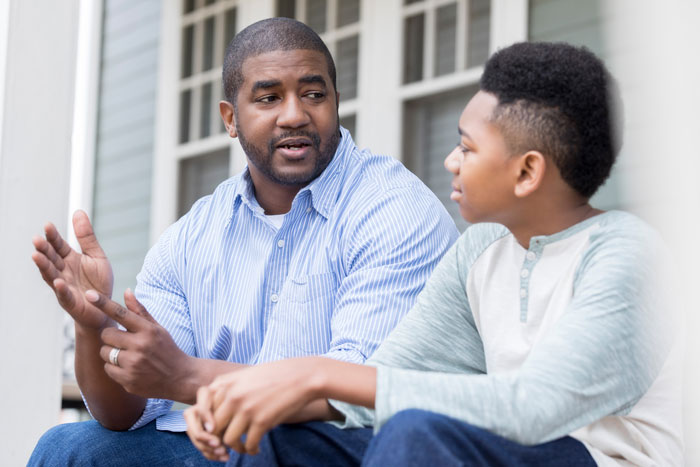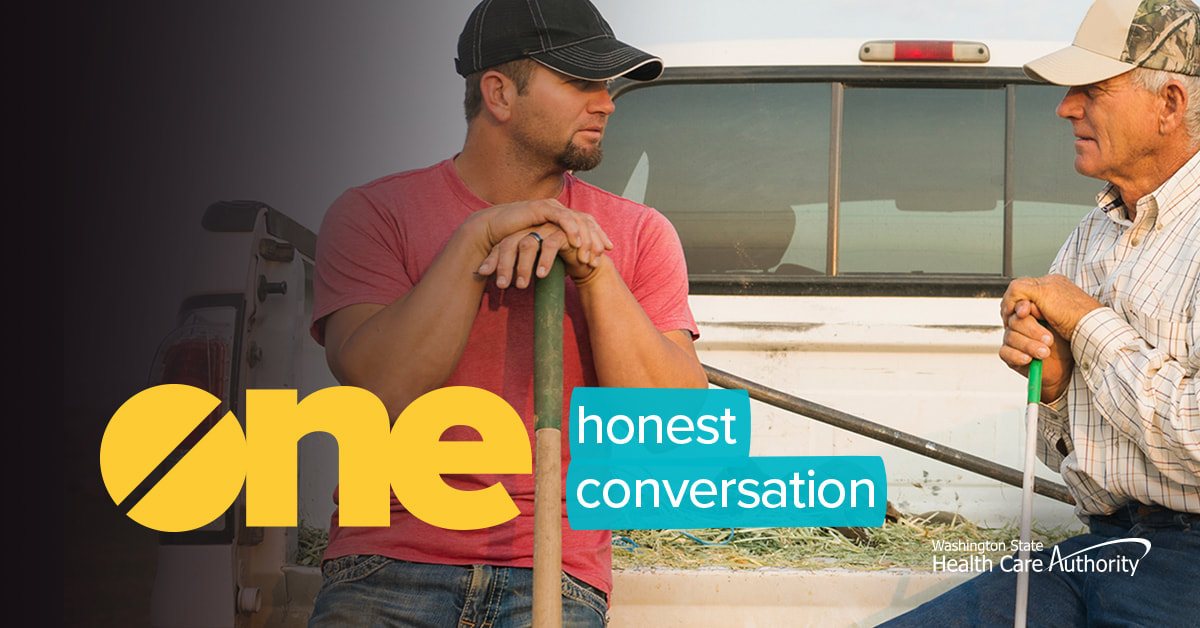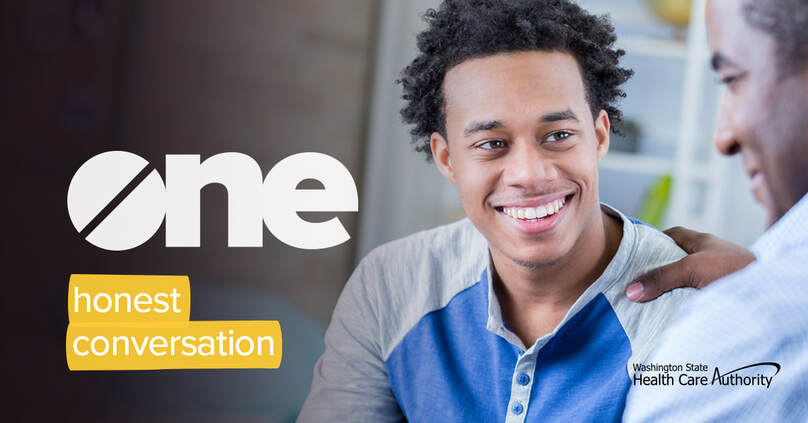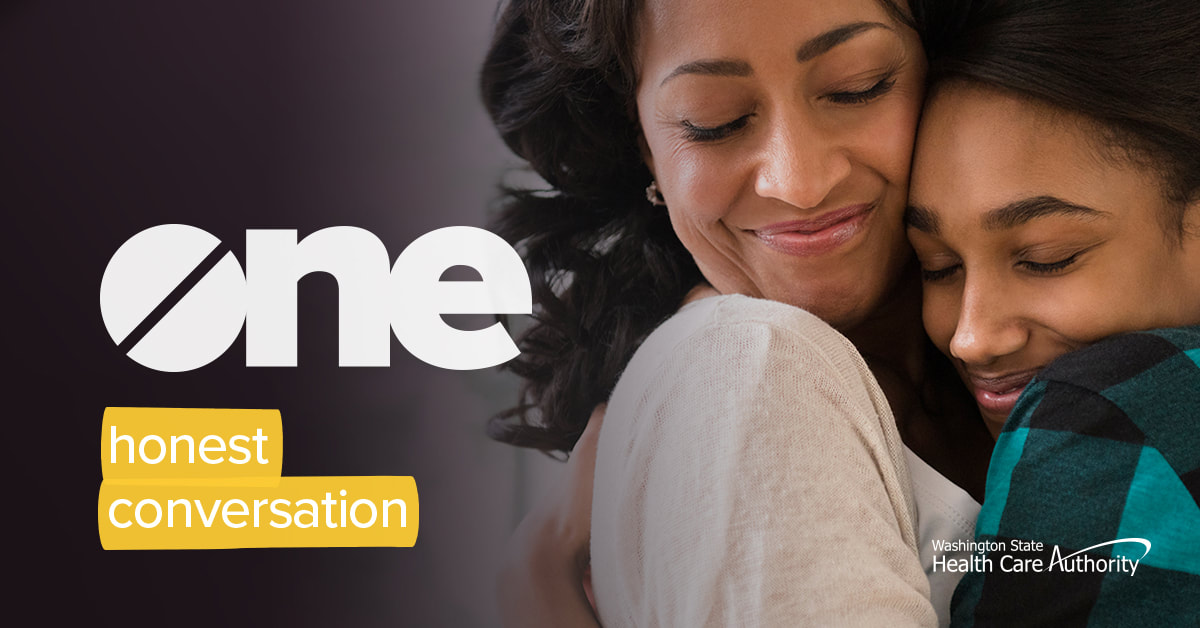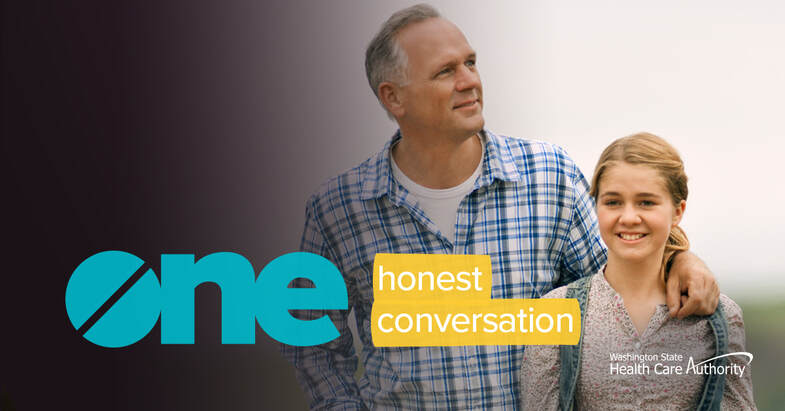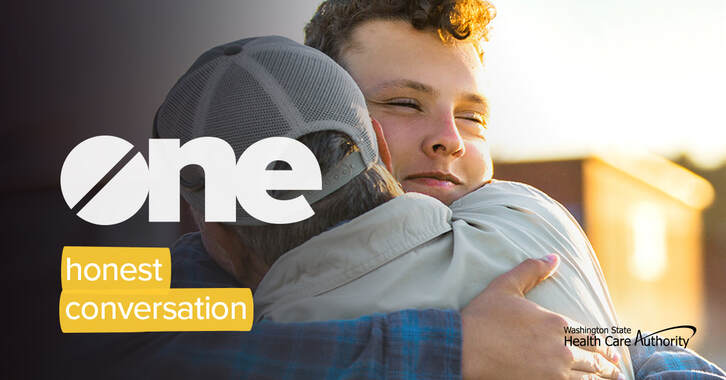Youth are 50% less likely to misuse opioids if a loved one talks to them about the dangers
The hardest step is the most important
Knowing how to start the conversation can be the hardest part. We have compiled multiple resources to help you navigate through the conversation.
Talk About How Your Kids Can Communicate Boundaries
Hey, how are things going at school with your friends? … I have heard some other parents talk about a few situations of kids experimenting with drugs. Have your friends been talking about that at all? … You know, if you are ever offered drugs, you should feel totally confident just saying “no thanks.” But if you feel uncomfortable, know that you can always blame it on me and say that your mom/dad would take away your phone/sport/car/etc. if you got caught. And know you can always call me to come pick you up if you are some place you don’t feel comfortable.
Share Why and How Prescriptions Are Used
I saw a story on the news today about kids trying their parents' or their friends' parents' prescription drugs. You know, prescriptions are only for the people the doctor prescribes them to for many health and safety reasons. People are often allergic to certain medications and almost all medicines have side effects, which can affect people differently. It is really important to only take the medications prescribed to you by your doctor to keep you safe. What would you say if someone offered you their prescriptions or asked to have some of ours?
It can be tempting to talk about your own experiences with drugs. Keep the conversation to how you communicated boundaries and keep the door open for your child to talk about their own experience.
When I was your age, I remember people in my class experimenting with drugs on the weekends. I know the times have changed, but drugs are just as dangerous, and peer pressure is just as real. I wasn't perfect, but I played soccer and wanted to keep myself fit and out of trouble, and most people at school understood that. With all the things you have going on, be confident in saying you aren't going to try anything because you need to keep yourself healthy for (activity).
It can be tempting to talk about your own experiences with drugs. Keep the conversation to how you communicated boundaries and keep the door open for your child to talk about their own experience.
When I was your age, I remember people in my class experimenting with drugs on the weekends. I know the times have changed, but drugs are just as dangerous, and peer pressure is just as real. I wasn't perfect, but I played soccer and wanted to keep myself fit and out of trouble, and most people at school understood that. With all the things you have going on, be confident in saying you aren't going to try anything because you need to keep yourself healthy for (activity).
Check in About Stress Levels and Overall Well-being
Hey, how are things going? ... I know there is a lot of change at school this year. Some of it is really exciting and some of it might be a challenge. Just know that if things starts to get stressful, I am here for you and so is (trusted adult). If you are ever feeling overwhelmed, let us know and we will help find a way to work through it.
Just know that drugs and alcohol are not going to get you through the stress or make more friends. They can actually lead to anxiety and broken relationships. I really love and care about you, and will help you get through whatever you are facing.
Just know that drugs and alcohol are not going to get you through the stress or make more friends. They can actually lead to anxiety and broken relationships. I really love and care about you, and will help you get through whatever you are facing.
If You Know Your Child Has Experimented with Drugs, Be Direct and Offer Support
I know you have been drinking/smoking/using drugs, and it is really upsetting to me. I know you are afraid of getting in trouble, but I already know, so now I really just need to know what is going on and what got you started even experimenting.
I love and care about you and want to help you through this. You deserve to be happy and healthy, and I am here to support getting you there.
I love and care about you and want to help you through this. You deserve to be happy and healthy, and I am here to support getting you there.
Additional Resources and Conversation Starters
Carve Out Time to Connect
Between work, activities, practices and schoolwork, finding quality time together can be challenging. And, so often when families are together, devices and screens get in the way of truly connecting.
Create time or get the most out of your limited time together by working on a project or eating a meal with your kids. It goes a long way in nurturing a trusting and loving relationship.
Create time or get the most out of your limited time together by working on a project or eating a meal with your kids. It goes a long way in nurturing a trusting and loving relationship.
Listen More
It is often a parent’s role to start a conversation with their kids, especially as they get older into their teen and young adult years. But once the dialogue is going, the most effective role for a parent is to be a listener.
Allow your child to talk to you from their perspective, without being led in a direction of what you want to hear.
Listen both to what your child is saying and also to what they are not saying:
Repeat what they say to show you are actively listening. All people, no matter their age, want to be heard and understood.
Allow your child to talk to you from their perspective, without being led in a direction of what you want to hear.
Listen both to what your child is saying and also to what they are not saying:
- Where are they finding joy?
- Where might they need some encouragement or support?
Repeat what they say to show you are actively listening. All people, no matter their age, want to be heard and understood.


